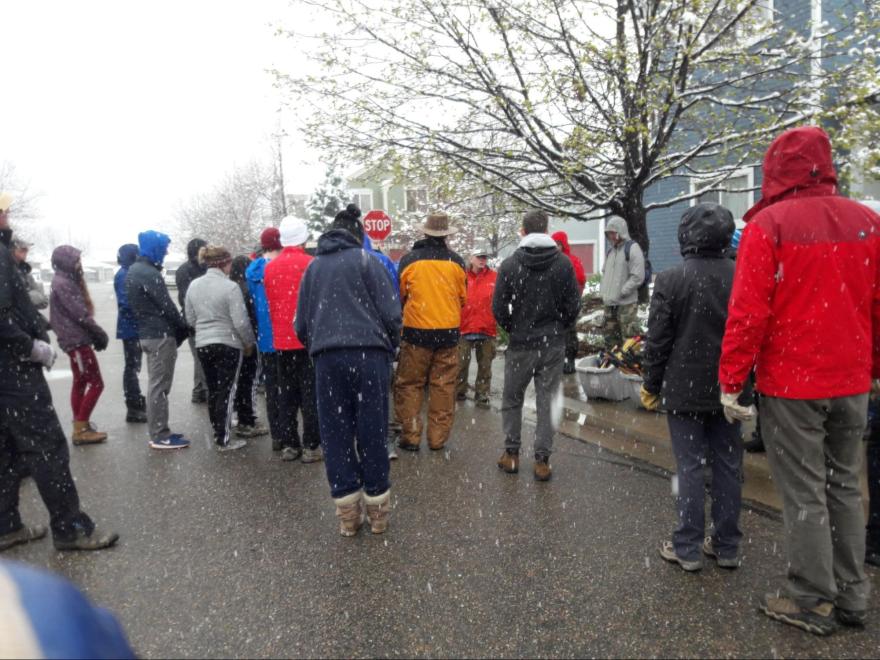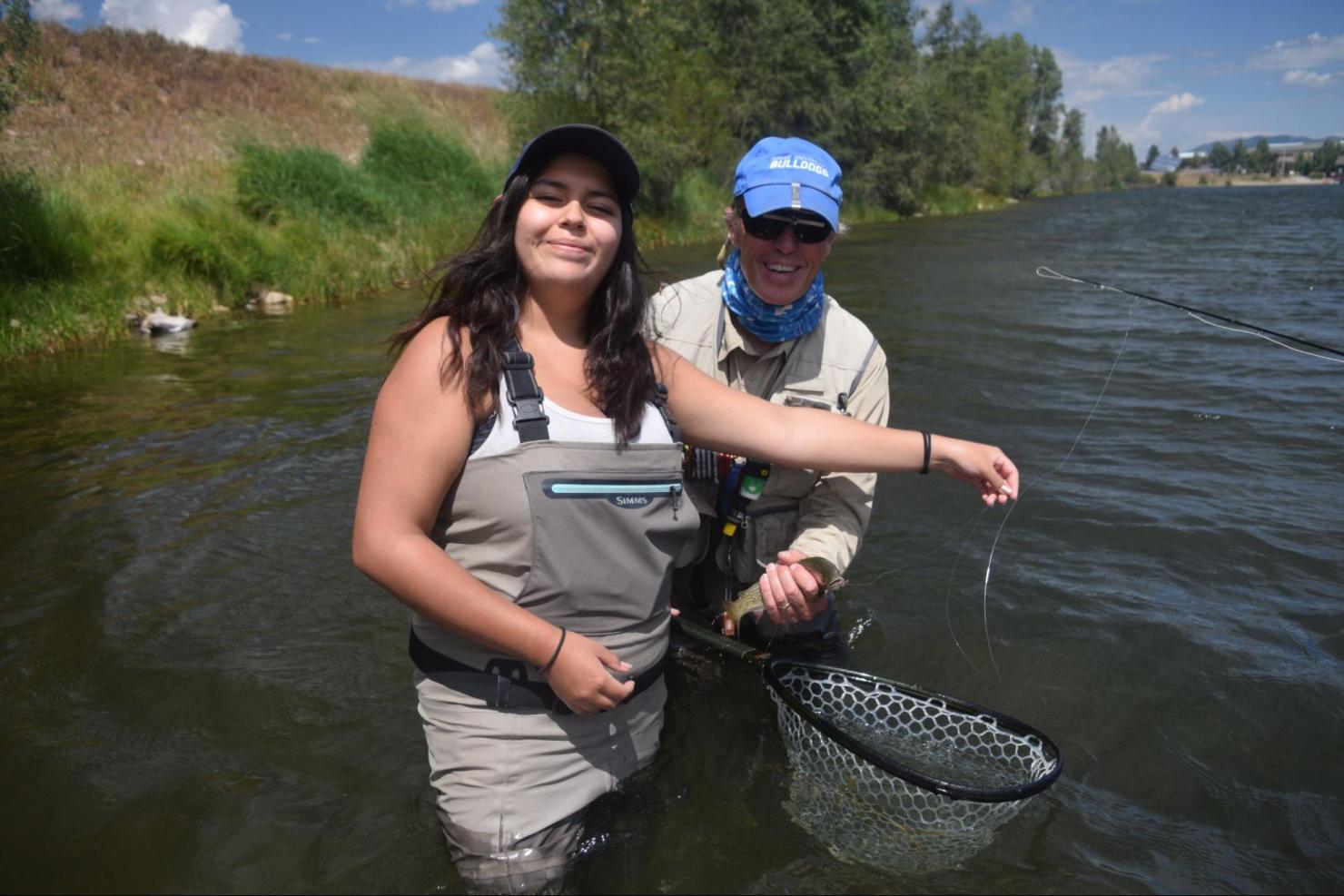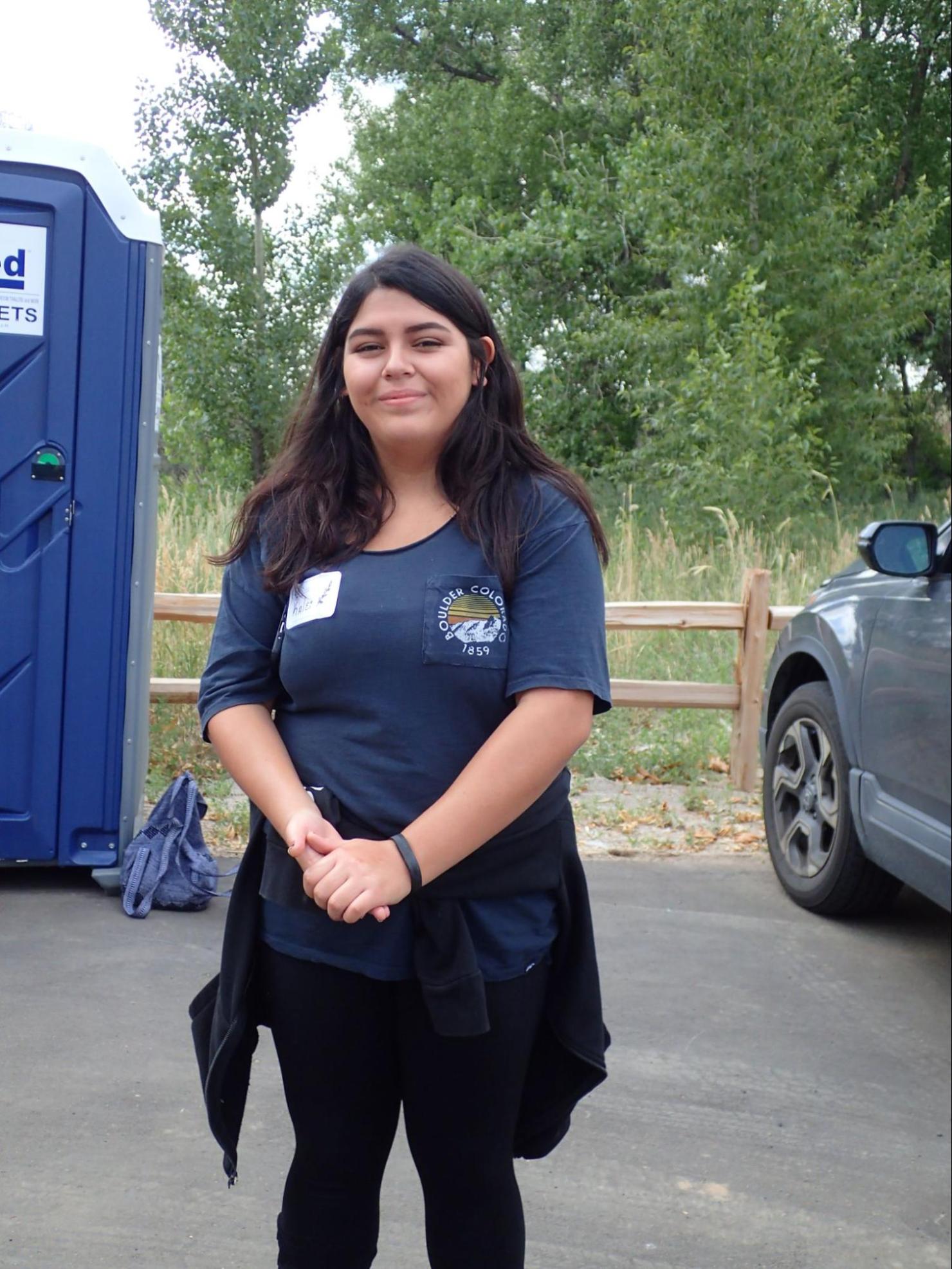By Kalei Gopar-Martinez
This article is part of our Generation Wild Coalition Storytelling series to give you an inside look at the work being done on the ground in Generation Wild communities.
Kalei Gopar-Martinez (she/her/hers) joined Thorne Nature Experience full-time in 2025. She recently graduated from the University of Colorado at Boulder with a degree in environmental studies and a minor in leadership. Kalei is from Lafayette, Colo., and is passionate about making the outdoors more accessible for all.
A first job is often memorable. I was lucky enough to have one that introduced me to environmental careers. I was an environmental education intern for Nature Kids/Jóvenes de la Naturaleza, a collaboration between 61 different partners, including Thorne Nature Experience, Cal-Wood Education Center, Wildlands Restoration Volunteers (WRV), and Keystone Science School.

My first two summers as an intern, I got to go camping with friends and partnered with different organizations. I couldn’t believe I was being paid for spending time outside. One job we had as interns during this time was to crew lead at an Earth Day Volunteer Weeding project. I convinced my whole family (my mom, brother, cousins, and even my grandpa) to join, I wanted them to come because I was a crew leader. We removed invasive Russian Olive from Waneka Lake, and a surprise blizzard rolled in that we had to push through and keep working as slush fell from the trees above us. They still joke, “I can’t believe Kalei made us do that!” That day brought us closer as a family while we did something meaningful for the community we were from.
I began serving on the Youth Advisory Board for NKJN, where a core responsibility was to help allocate a $5,000 budget by reviewing grant applications for nature-focused projects in the community. Helping direct funding to local environmental initiatives prepared me for later co-writing grants that helped create WRV’s Youth Advisory Board, Wildlands Youth Leadership Development (WYLD), which I later served on as well. Both experiences helped me strengthen my resume for college.
Image

Over time, I was given more responsibility and supported larger collaborative projects with WRV, the City of Lafayette, and other NKJN partners. During college, I served as a University of Colorado mentor for NKJN and WRV’s Lafayette Youth Interns program. I was learning how to write environmental education lesson plans at school while actively putting them into practice during weekends and summers. The flexibility and seasonality of NKJN and WRV’s summer camp programs allowed me to gain valuable professional experience without compromising my education.
I went from NKJN and WRV program participant to assistant instructor, instructor, site coordinator, and now “Community Impact Specialist.” I have seen my own personal growth as a leader through these experiences. I remember my first summer working with NKJN when a little girl threw my water bottle down the river while I was teaching day camp. I don’t know why she did it, but I just remember watching it float down the river as she laughed. This year, I was able to keep all my personal possessions by creating clear boundaries and expectations with groups early on. Each season, I continue developing my leadership skills while helping more kids learn about nature.
Image

Looking back, those summers outdoors gave me the opportunity to teach others about nature. They helped me develop my public speaking and teamwork skills while allowing me to share my learnings with my family and community. I have gotten to the point where I can tell the difference between a toddler who has explored outside and one who hasn’t.
In my current role, I help lead the NKJN Nature Kids Little Explorers program, which brings families who live in subsidized housing outside to explore their local trails. I noticed one child had good balance and mentioned it to his mom, who replied that it’s from his time “wandering around in nature” on the commune where they used to live. The goal of programs like this is to be that space for more children to have those important early experiences. Being outdoors helps people in various ways in life – not just to develop balance on uneven surfaces, but also social development, building community, and so much more.
I started as one of 10 high school interns in 2017, and half of us, now in our twenties, ended up with jobs in the environmental field. That’s why I advocate for organizations to continue making the outdoors accessible and highlighting the variety of careers it offers. To me, building pathways is one of the most important ways to get people outdoors and to build their lives around it to be happy and healthy. I hope programs like those I participated in continue to be supported, so the next generation of environmental leaders can get their start outdoors just like I did, even if it is in a blizzard. Young people can gain so much from being outdoors. For my family and me, this was made possible through organizations like Nature Kids and GOCO. Thank you for reading my story.
